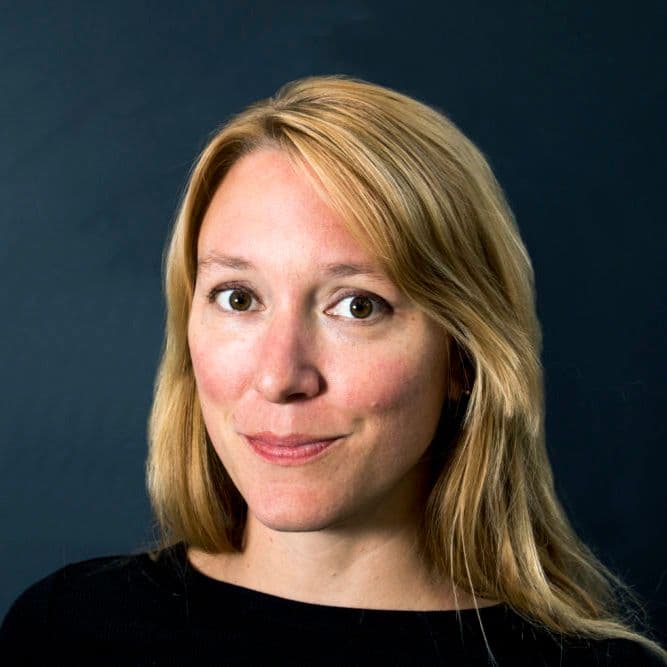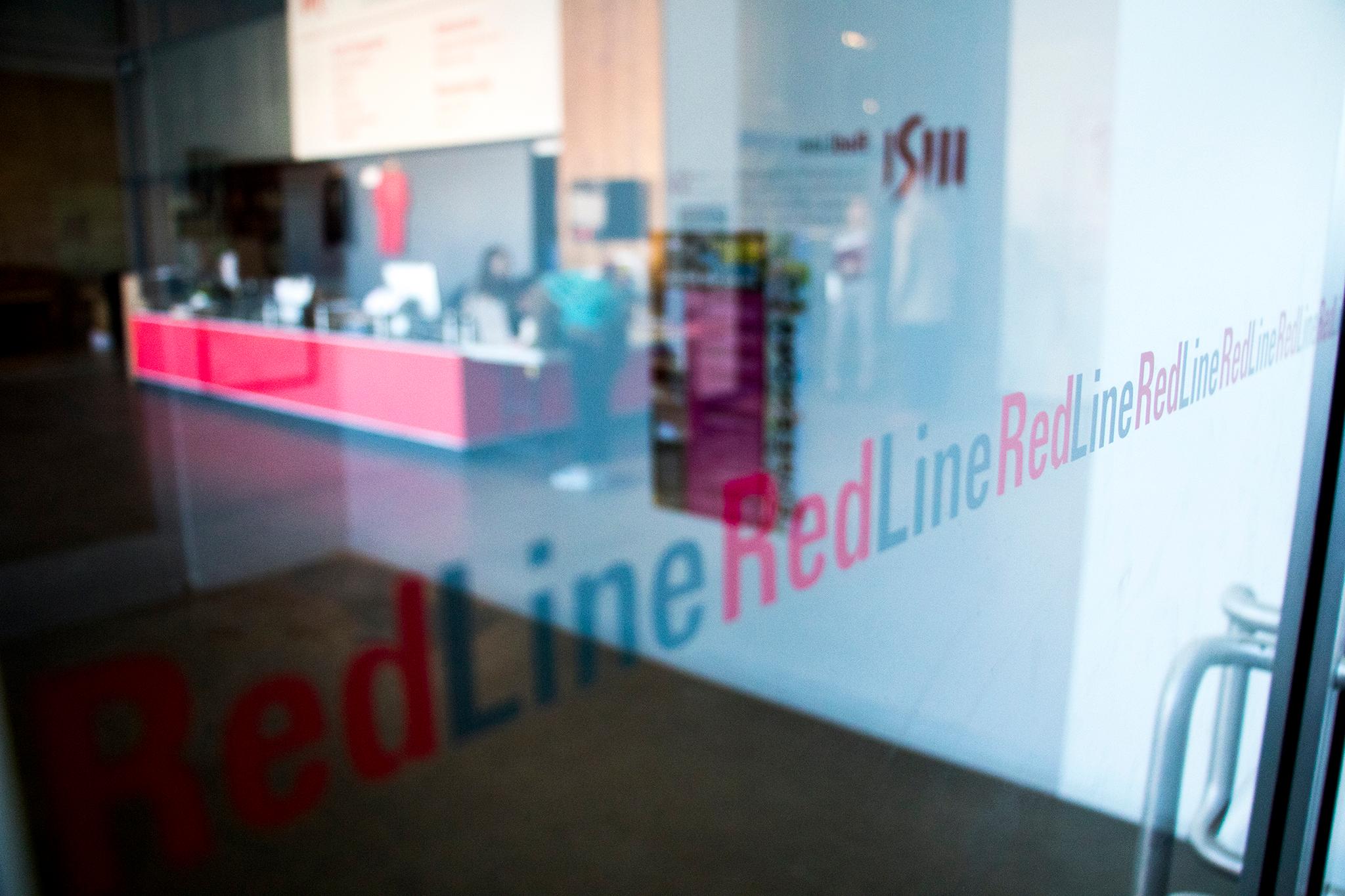Eight weeks ago, another artist left Denver.
Some others might have left, too — we don't know for sure — but the departure we heard about was that of Dustin Young. After he finished his residency at RedLine Contemporary Art Center, Young decided he couldn't go back to painting and drawing in his dining room. He and his wife had just become parents and moved out to the suburbs, and it became clear that homeownership and studio space were out of reach in the metro area.
In my ongoing effort to understand why people in the arts leave Denver and how their departures reverberate throughout their communities, I gave Young a call to talk about his move. He and his family call North Dakota home now. It's a far cry from Denver, but it's getting them a lot closer to the life they want.
Ashley Dean: So where were you living?
Dustin Young: We lived right near DU, then my wife got pregnant two years ago and we moved out to Parker and bought a condo. We were trying to find a place to rent and that wasn’t happening.
How long were you there?
Two years. So we were in Denver for about four years.
Did you have jobs outside of your work as an artist?
Yes. We both had full-time jobs. My wife worked as a tax specialist for a company in town and I worked as the lead painter for a company called Playtime, that’s in Englewood. … We do things like — Have you been the Cherry Creek mall? The play area in the center. Playtime is the world’s No.1 play area developer. It’s in every continent except Antarctica.
Was Denver’s art scene the reason you moved here or was it just that you liked the city in general?
That was the big reason. I met Alvin Gregorio and Don Fodness as artists when I was going to grad school at the University of Nebraska. They gave a presentation and artist talk and showed work, and visited my studio in Denver. Don is the one who showed me Playtime when I moved to Denver. I was really impressed with what Don was doing with the Showpen residency at the time. … It seemed like there were a lot of opportunities at the tie, and there still are.
What made you decide to leave?
It was just financial restrictions. Cost of living had gone up kind of a lot. We both have pretty good jobs, but it’s kind of the student loan debt we had to worry about and we had a baby boy two Januaries ago almost. … We had him, so we had to pay for daycare. Before we had him we were just barely doing OK and then it seemed like one month we were ahead and the next we were behind, so we just made the decision to go up to North Dakota where my wife is from. And I’m from the Midwest. We’re staying in her parents' basement right now, so we’re doing the cliched millennial thing.
When did you start thinking about leaving? I imagine it takes some time to decide to uproot your life.
We were looking at house prices when we were looking at buying a place. … We wanted to get a house and we absolutely couldn't afford it. When we had [our son] Harrison, the condo got a little bit smaller. It seemed like if we sold our place we could at least sidestep and get another condo, but it seemed there was no way of moving up and getting a bigger place. … It progressed and progressed and finally, while the market was still hot, we decided to cash in our equity and pay our debts and stay at my in-laws' place.
What do you think needs to change for artists to stay in Denver?
I think, one, student loan debt is hurting a lot of people. I just know from personal experience, it’s like having a second mortgage. … I think that’s more of a national issue than a Denver issue. Of course, the first thing that comes to mind is the housing in Denver has been going off the rails. There's programs out there that are trying to get things like Rhinoceropolis back and up to code, there are things like that that are good. Instead of neighborhoods being gentrified and kicking artists out, Denver could find a better way to upgrade, for lack of a better term, these neighborhoods. … How can we keep the people and the culture of a place while upgrading the amenities and not pricing everybody out?
What about jobs? Is there a good enough job market for people in the arts?
I went to school to eventually teach at a University, but that was so cutthroat to get a job in town. … It’s really hard work. I was lucky enough to find a full-time job that is artistic, but in order to pay the bills, I was working so much, over 50 hours a week, just trying to make sure I got the job done and also make sure I had the money to pay the mortgage and student loans. But I was lucky to get a job [quickly]. … I think there definitely could be more opportunities for artists.
Working 50 hours a week doesn’t leave much time for your own projects.
Exactly. I was a RedLine artist for the last two years and I was really disappointed in myself for not being able to take advantage of everything RedLine has to offer. … That’s a resource that every artist needs to use. They have weekly meetings. Once a month they have artist industry talks about how artists could find jobs more towards their degree and interest. … RedLine was great, but with a new family and demanding job, I wasn’t able to take advantage.
Playtime, because of the facilities that they had … they gave me a key and I could come in and work on my own stuff after hours. After my family would go to bed I’d go back and work nights.
It was definitely a grind. So that was one thing that started it wear me out, and I started to listen to my wife’s comments and concerns.

Do you have any insights or advice for artists trying to make it work in Denver?
I’d say just be willing to try and work in any job but always keep applying to residencies and group shows and stuff like that. As an artist, they say there's a 98 percent failure rate for college artists to become professionals? As long as you stay consistent and keep making new work and pushing it, I think that’s going to come, but you also have to balance that work-life load. There’s a trade-off. You can’t have it all. Honestly, cutting out the social life is the best bet if you want to make it as an artist, and using that time to work on your own work. ... I think Denver’s kind of a reflection of what’s going on elsewhere. The housing market kind of exacerbates things in terms of what's going on for artists. In big cities, it's kind of the norm that when artists move into a new neighborhood it gets trendy and it gets gentrified. .... Keep demonstrating, keep protesting and keep voting. I think that's a big thing to make sure our voices are heard locally as well as nationally."














